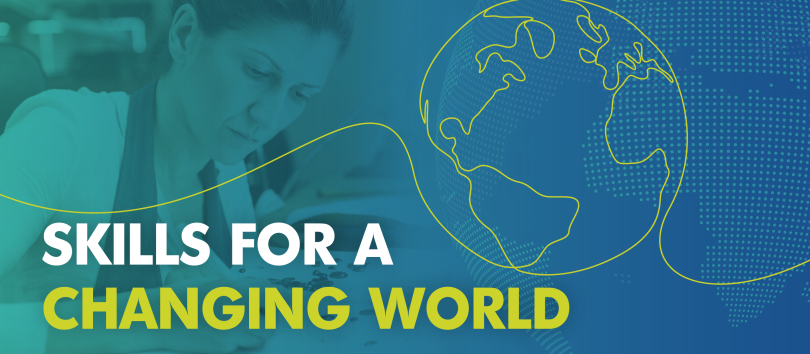
Education and training: a powerful player in changing times
Lifelong learning and skills development are essential for individuals, economies, and societies to keep abreast of, and thrive in the changing world around us. They are needed to prepare current and future workers and citizens and to foster innovative economies and societies that can harness opportunities like those of the green and digital transitions. The role of skills to enhance lives and help ensure fair and just societies has received an added impetus with 2023 being declared the European Year of Skills by the European Commission.
The ETF’s Director, Pilvi Torsti, in the latest ETF Skills Factory podcast* refers to the power of education and skills to change the world and 'to be a long-term agent of change' to address the challenges of our times including rising inequality, marginalization and threats to democracy.
Ensuring people have the opportunities to develop the skills they need, and benefit employers and societies requires action on many fronts, such as quality education and training that interfaces with the surrounding world in an inclusive and democratic way; measures supporting smooth school-to-work transition; upskilling and reskilling of those already employed or seeking to regain employment; open and accessible labour markets; and a private sector able to benefit from skilled workers and make returns to and reinforce the ecosystem which has produced them. For this to happen, support for inclusive governance arrangements built on partnerships of multiple stakeholders from the public, private and civic spheres are needed.
“Education and human capital development is the way forward but more discussion is needed on how,” says Torsti. “It is important to balance global, national and local interests and values,” she asserts.
Drawing upon the EU's strategic and policy priorities for skills development, and in response to countries requests, the ETF supports skills for a changing world by providing policy advice and targeted actions supporting the innovation of education and training curricula, recognition of qualifications, professional development of teachers and trainers, work-based learning arrangements, labour market research and analysis, social dialogue and inclusion, good governance arrangements, and networks for good practice sharing and peer learning, such as the Innovative Educators and the ETF Network of Excellence. Regular gathering of skills intelligence in partnership with national and international counterparts through system level monitoring and evaluation of policy reform through the Torino Process and other frameworks, and support for policy adaptation underscore all ETF actions.
Throughout May and June stay tuned to the ETF’s website and social media channels, and newsletter Learning Connects No 13, which focuses on 'skills for a changing world' to find out how the EU’s neighbouring countries are reforming skills development policies and practices, with the support of the ETF, and their contribution to the discussion on the transformative role of education and training.
______________________________
*ETF podcast #27 – Education on the brink: Why a global vision is crucial
Did you like this article? If you would like to be notified when new content like this is published, subscribe to receive our email alerts.